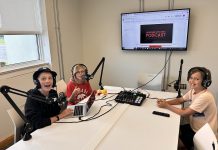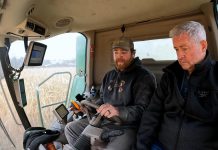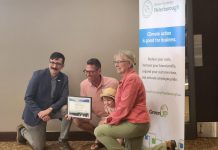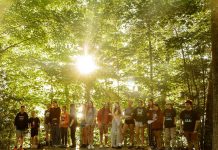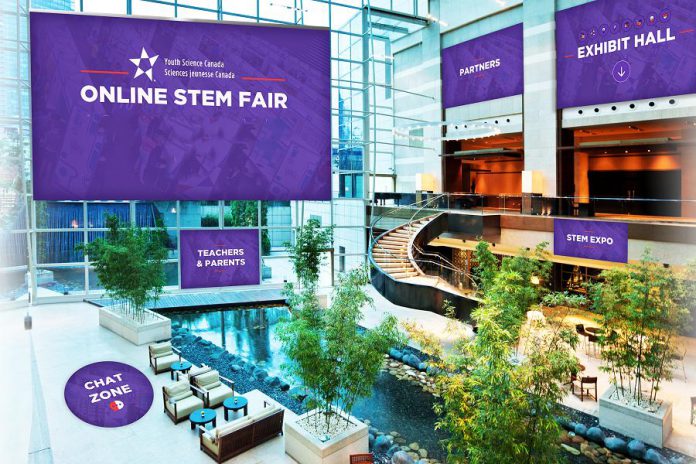
Three Peterborough students have been recognized for their science projects at the inaugural Youth Science Canada Online Science, Technology, Engineering and Mathematics (STEM) Fair.
Students in grades 7 to 12 across Canada participated in the virtual fair, which was created after the Canada-Wide Science Fair 2020 (originally scheduled to take place in Edmonton, Alberta) and most of the 103 regional science fairs across the country (including the Peterborough Regional Science Fair scheduled to take place at Trent University) were cancelled due to the COVID-19 pandemic.
Judges reviewed 631 student projects and awarded 275 virtual ribbons at three levels as part of the online showcase.
Holy Cross Secondary School Grade 12 student Jacob Bowman and Kenner Collegiate Grade 9 student Shaun Plassery each won a national, regional, and challenge ribbon, while St. Catherine School Grade 7 student Calvin Karthik won a regional ribbon.
Jacob Bowman’s project, entitled “Climate change implications for an urban brook trout stream“, was awarded the Environment & Climate Change Challenge ribbon as well as national and regional ribbons.
Bowman used a GoPro camera to sample the urban brook trout population of Harper Creek in Peterborough and projected the effect of climate change on the brook trout populations in four creek sections up to 2100. He concluded that urban brook trout could be protected from the impacts of climate change by restoring tree cover along stream banks.
VIDEO: Climate change implications for an urban brook trout stream
Shaun Plassery’s project, entitled “Phytoremediation of Crude Oil: Effect of Rhizobium and Kelp on Soybean & Wheat under Oil Stress“, was awarded the Natural Resources Challenge ribbon as well as national and regional ribbons.
Plassery studied how rhizobiuma (a bacteria found in soil that helps in fixing atmospheric nitrogen and converting it into ammonia that plants use for growth) and kelp extract (a saltwater seaweed comprised of algae) affect the growth of plants in soil that has been contaminated by oil. He found that, while rhizobiuma and kelp did not improve plant growth in oil-contaminated soil, they did improve plant growth in non-contaminated soil.
VIDEO: Phytoremediation of Crude Oil: Effect of Rhizobium and Kelp on Soybean & Wheat under Oil Stress
Calvin Karthik’s project, entitled “A Mighty Mushroom and the Power of Poop: Testing Biogas Production using Spent Mushroom Substrate“, was awarded a regional ribbon.
Karthik examined what types of animal manure (sheep manure, cow dung, or a mixture of both) produced the most biogas when combined with mushroom substrate (a waste material from mushroom cultivation). He discovered that a mixture of cow dung and sheep manure produced the most biogas.
VIDEO: A Mighty Mushroom and the Power of Poop: Testing Biogas Production using Spent Mushroom Substrate
The complete list of the Youth Science Canada Online STEM Fair ribbon recipients is available at youthscience.ca.
The Peterborough Science Fair is scheduled to return to Trent University on April 8, 2021, with the Canada-Wide Science Fair scheduled to take place in Ottawa from May 15 to 21, 2021.
In addition, Youth Science Canada plans to host another Online STEM Fair from October to February, featuring projects eligible to participate in regional science fairs in March and April.



